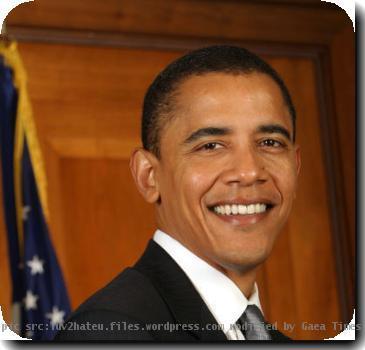Obama sells good news story of government’s auto bailout in Michigan
By Charles Babington, APFriday, July 30, 2010
Obama hails auto bailout as good news in Michigan
DETROIT — A year after the government’s big auto-industry bailouts, President Barack Obama on Friday trumpeted increased car sales and progress on battery-powered vehicles as a beacon of success in his administration’s battle to revive a hurting U.S. economy. But his upbeat assessment can’t mask daunting challenges for U.S. automakers and painfully high unemployment.
Touring Chrysler and General Motors assembly plants, Obama argued that his administration’s unpopular $60 billion bailout of the two companies — essentially government-funded forced bankruptcies — was paying off. Clear evidence that he sees an opening to appeal to recession-weary voters, Obama will continue to press the same case next week when he tours the Chicago plant where Ford Motor Co. builds the Taurus sedan and plans to assemble a new Explorer sport utility vehicle.
Few disagree that the intervention helped keep the firms afloat.
Obama and fellow Democrats are eager to seize on the auto industry story, framing it as a success before the fall congressional elections.
At Chrysler’s Jefferson North plant, which recently added about 1,100 workers for a second shift, the president told employees, to loud cheers, “you are proving the naysayers wrong.”
After touring the GM’s massive Hamtramck assembly plant not far away — where he drove a battery-powered Chevy Volt about 10 feet for the news cameras — Obama was even more animated.
“There’s a just-say-no-crowd in Washington” that would have let the domestic car industry die, he said.
Obama said he understands why many in the country were skeptical — or outright opposed — to a massive infusion of taxpayer cash into the industry, and acknowledged that “the politics of it weren’t good.”
The taxpayer-financed bailout prevented complete failure of the domestic industry and set it up for long-term success, said Jesse Toprak, an economist and vice president of industry trends at auto website TrueCar.com. The industry has hired 55,000 workers since the bailout, the strongest year of job growth since 1999. Unlike the other automakers, Ford didn’t receive the government’s financial help, but benefits from the strength of its counterparts and the rest of the supply chain.
But many Americans still resent the tax-funded bailouts of the iconic companies, and the beleaguered industry’s recovery is piecemeal. Because of economic fears, consumers remain reluctant to make big-ticket purchases like autos. So far this year, U.S. sales are running at a rate of about 11.5 million vehicles, up from last year’s 10.4 million but still far short of 14 million, what Toprak calls the natural level of demand.
The auto industry gains are but a dent in the country’s dismal joblessness picture. The four economic indicators that Toprak monitors — unemployment, the Dow Jones industrial average, consumer confidence and new home construction — have all headed in the wrong direction of late.
“All the measures need to improve for a true, stable and healthy recovery in the industry,” Toprak said. “And that isn’t likely to happen for another year or two.”
Obama’s words came only hours after the Commerce Department issued a discouraging report signaling the economic recovery as a whole has slowed in recent months. The nation’s economy grew at a sluggish 2.4 percent in the second quarter, suggesting many employers are thinking twice about hiring new workers.
Obama acknowledged the report, saying the nation is heading in the right direction.
The president said taxpayers will recoup the billions poured into Chrysler and GM during his presidency, as the companies repay the government. Aides acknowledged that probably will not apply to the $25 billion funneled to the industry in 2008 under the Bush administration. The most recent government estimate found that taxpayers will lose $24.3 billion on the auto bailout.
GM has repaid $6.7 billion that the government considered loans, with the remaining $43.3 billion converted into a 61 percent stake in the company. GM is expected to conduct an initial public offering of shares in the company later this year, a move that could help the government recoup some of its investment.
The president also overstated the case when he said all three major U.S. carmakers are making profits.
Chrysler has yet to post a net profit since leaving bankruptcy protection in June of last year. The company had a first-quarter net loss of $197 million, but it made $143 million before interest and taxes. CEO Sergio Marchionne said the only reason the company is not profitable is because it must pay interest on government loans.
“I have money in the bank to cover that debt,” he said. “We have enough cash to pay it all off. But you can’t run a business without cash.”
Chrysler received about $15 billion in government help and was placed under control of Italian automaker Fiat as part of its bankruptcy. The company has repaid about half of the $4 billion loan portion of its aid and is considering a public stock offering sometime in 2011.
As for the Volt, analysts question how many car buyers will swallow its $41,000 cost. The car is designed to go about 40 miles on a rechargeable battery before a gasoline engine kicks in.
AP White House Correspondent Jennifer Loven in Washington contributed to this report.
Tags: Automobiles, Barack Obama, Car Buying, Detroit, District Of Columbia, Michigan, North America, Personnel, United States, Us-obama





